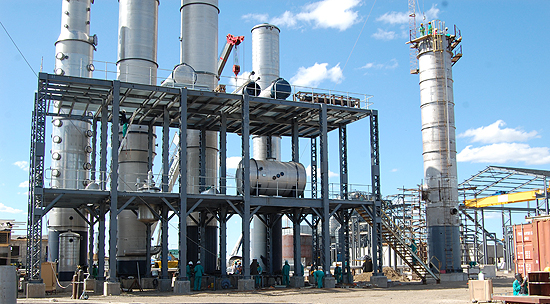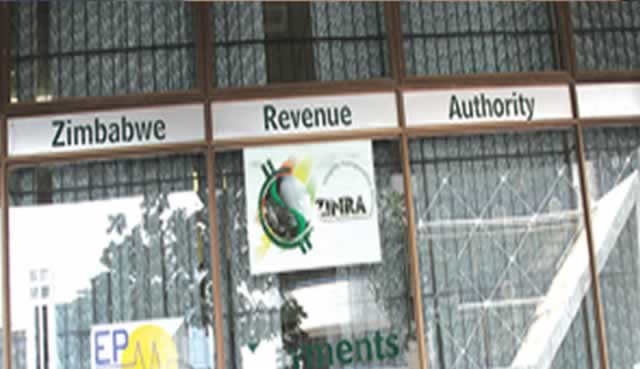No investment is bigger than the law


Chisumbanje GreenFuel is said to have begun operating without an EIA in breach of the law and is reported to be depositing effluent through unlined canals into rivers, posing danger to communities, charges it denies
Lloyd Gumbo Mr Speaker Sir
The Chinese are here, the Russians came and now Britain is about to send its high-powered business delegation at the end of this month to explore investment opportunities that they shunned for over a decade.
These big economies are trying to outdo each other as they seek to get the nod in extracting untapped resources that Zimbabwe is endowed with, but that comes with its own challenges especially in environmental management.
There is a new wave of investment opportunities in minerals, energy and infrastructural development that these super powers want to explore in Zimbabwe.
In essence, there is a scramble for resources here to the extent that countries that were hostile to Zimbabwe for daring to embark on the land reform programme are beginning to warm up despite grandstanding that the country is not investor friendly due to its governance and policy issues.
Zimbabwe is in an economic crisis and investors can take advantage by pushing investment deals that are tilted in their favour.
The recent revelation by Environmental Management Agency director general Mutsa Chasi before the Parliamentary Portfolio Committee on Youth, Indigenisation and Economic Empowerment chaired by Gokwe-Nembudziya MP, Justice Mayor Wadyajena, that Greenfuel had not secured an EIA and that it was discharging effluent into rivers contaminating water bodies and underground water in the process, is testimony to this problem.
Investors will not come to Zimbabwe to protect our environment.
It is our responsibility to protect it by ensuring that they comply with the law.
A surge in biofuels demand has seen multinational corporations flooding Africa where they have accumulated huge tracts of land previously used for food production in the process threatening the continent’s food security.
Zimbabwe is no exception, it has approved similar projects because of the lucrative fuel business that would see it cut down on money it takes out of the country to import fuel.
It requires uppermost diligence and craft competence in drafting these deals.
We live in a capitalist world despite concerted efforts by some sections to distance themselves from this ideology.
Investors come here to make money and will do everything within their means to ensure owners get the short end of the stick.
They should come here on our terms and comply with laws of the land no matter how politically connected or powerful they may think they wield.
Our laws must be applied fairly regardless of the identity of the investor.
Our Parliamentarians should not only be involved in crafting laws and debating treaties but should also be able to make representations on behalf of their constituents.
What use is investment that leaves people worse off than they were before multi-million dollar deals came to their doorstep?
What use is investment that compromises people’s health through companies disregarding laws of the country with impunity?
If Zimbabwe’s position is that no construction is to take place on wetlands and that Environmental Impact Assessment reports must precede any projects then so be it.
It is high time authorities stop talking with forked tongues because up to now there are no convincing explanations on the rationale behind constructing the Longcheng Plaza Shopping Mall at that site because the place has been known as a wetland.
Chasi told MPs that GreenFuel started operations without EIA in breach of the law and when eventually asked to submit it they did so without depositing the necessary monitoring fees.
Concentrated effluent, she said, was flowing through unlined canals posing danger to underground water quality.
She said the effluent being deposited in rivers did not have enough oxygen and that would impact on the water bodies.
The PH, she said was too acidic, something with long term effects on the ability of the soil to be productive.
“We are concerned that such effluent is going to affect underground water. In 2012, communities downstream raised water pollution concerns. We carried an inspection and discovered that Green-fuel was illegally discharging undiluted effluent into community rivers,” she said.
As a result cattle in those areas were refusing to drink the water and water-bodies in those rivers would die.
Mrs Chasi said they had to hire an independent expert from the University of Zimbabwe to make an evaluation which confirmed their observation after GreenFuel sought to discredit their analysis.
“GreenFuel has either failed, refused or objected to comply with the law,” she said.
Surely, Zimbabwe is not a banana Republic that investors can hold the country to ransom by blatantly refusing to comply with its laws.
There is no investment that’s too important than the people.
Chisumbanje villagers’ lives must not be tempered with because of financial power or political allegiance.
Water rights, human health and environmental protection must be the cardinal rules of any investment and anyone who breaches any of them cannot be allowed to continue operating.
If Government, through EMA, could direct that all mining operations along rivers cease operations following massive environmental degradation along Mazowe River, then what stops the same Government to take action against GreenFuel?
This is not a politicking issue, it is about people’s lives and their livelihood is at stake. Life is more important than money and people’s representatives must ensure that people’s interests come first.
Investment deals in Zimbabwe are general conducted in an opaque manner and are only made public after they have been sealed.
That is where the problem starts, modern governance requires that if there is to be projects in an area people concerned must be consulted for their input.
They should not just wake up to find earthmoving equipment roaming their area and those contracts must be publicly available.
Parliamentarians, by virtue of being people’s representatives, must be involved in mega-projects that have potential to impact on ordinary people’s health in their constituencies.
For instance, this could be done by making EIAs public and allow Parliament to debate them and call for public hearings for people affected by such projects to say out their views.
It boggles the mind how some MPs then decide to defend companies whose activities are impacting negatively on the living conditions of the people.
If there are projects in their constituencies, parliamentarians must take the lead in ensuring that investors comply with the country’s laws and to report any action that may harm residents or villagers in that area.










Comments